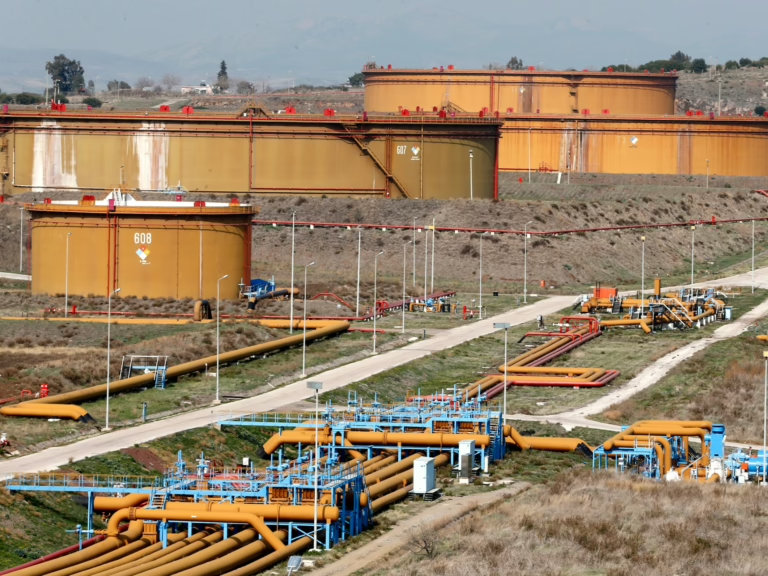Disputes over control of profitable oil exports have long strained relations between Baghdad and the Kurdistan region, with a crucial pipeline to Turkiye remaining closed since 2023.
Published On 27 Sep 2025
After a stalemate lasting over two years due to legal and technical disagreements, Iraq has recommenced crude oil shipments from the semi-autonomous Kurdistan region to Turkiye.
The Iraqi Ministry of Oil announced on Saturday that exports resumed at 6 a.m. local time (03:00 GMT), emphasizing that operations have proceeded swiftly and without major technical issues.
Turkish Energy Minister Alparslan Bayraktar corroborated this update via a post on X, confirming the restart of oil flows.
This breakthrough stems from a trilateral agreement involving Iraq’s federal government, the Kurdistan Regional Government (KRG), and international oil companies active in the area. According to Iraq’s oil minister speaking to Kurdish media outlet Rudaw, the deal permits between 180,000 and 190,000 barrels per day (bpd) to be transported to Turkiye’s Ceyhan port.
The accord was finalized earlier this week, following negotiations between the federal ministry, the KRG’s natural resources ministry, and foreign oil firms operating within Kurdistan.
The United States played a pivotal role in facilitating this resolution, anticipating that exports could eventually reach up to 230,000 bpd. This development coincides with OPEC’s strategy to increase production and capture greater market share. US Secretary of State Marco Rubio praised the agreement, highlighting its potential to deliver concrete advantages for both Iraqi and American stakeholders.
Mohammed al-Najjar, Iraq’s representative to OPEC, indicated that the country is positioned to boost exports beyond current levels through the Kirkuk-Ceyhan pipeline, alongside upcoming projects at Basra port, as reported by the Iraqi News Agency (INA).
He emphasized that OPEC members are entitled to request higher production quotas, especially when new initiatives enhance their output capacity.
Under the terms of the deal, companies operating in the Kurdistan region will receive $16 per barrel to cover production and transportation expenses. The eight oil firms involved, together with Kurdish authorities, have committed to convene within 30 days of export resumption to devise a plan addressing the Kurdistan region’s outstanding debt of $1 billion owed to these companies.
Historically, control over lucrative oil exports has been a significant source of friction between Baghdad and Erbil. This agreement is viewed as a positive step toward increasing Iraq’s oil revenues and fostering a more stable relationship between the central government and the Kurdish region.
Previously, the Kurdish authorities independently managed oil sales through Turkiye’s Ceyhan port without federal approval or oversight.
The Kirkuk-Ceyhan pipeline was shut down in March 2023 after the International Chamber of Commerce in Paris ruled that Turkiye must pay Iraq $1.5 billion in damages for unauthorized exports conducted by the Kurdish regional government.
The Association of the Petroleum Industry of Kurdistan, representing international oil companies in the region, estimates that Iraq has suffered losses exceeding $35 billion since the pipeline’s closure.

















